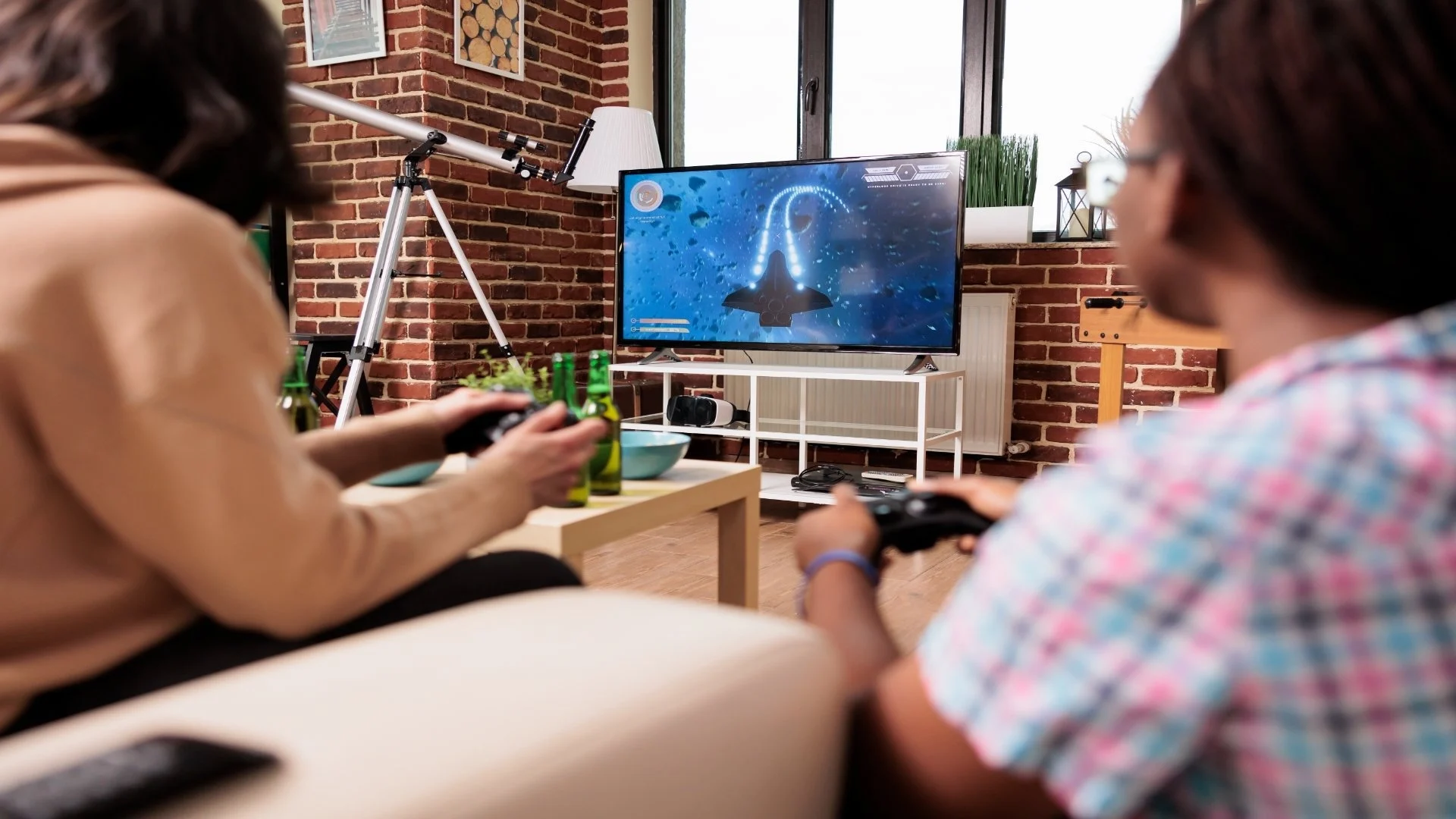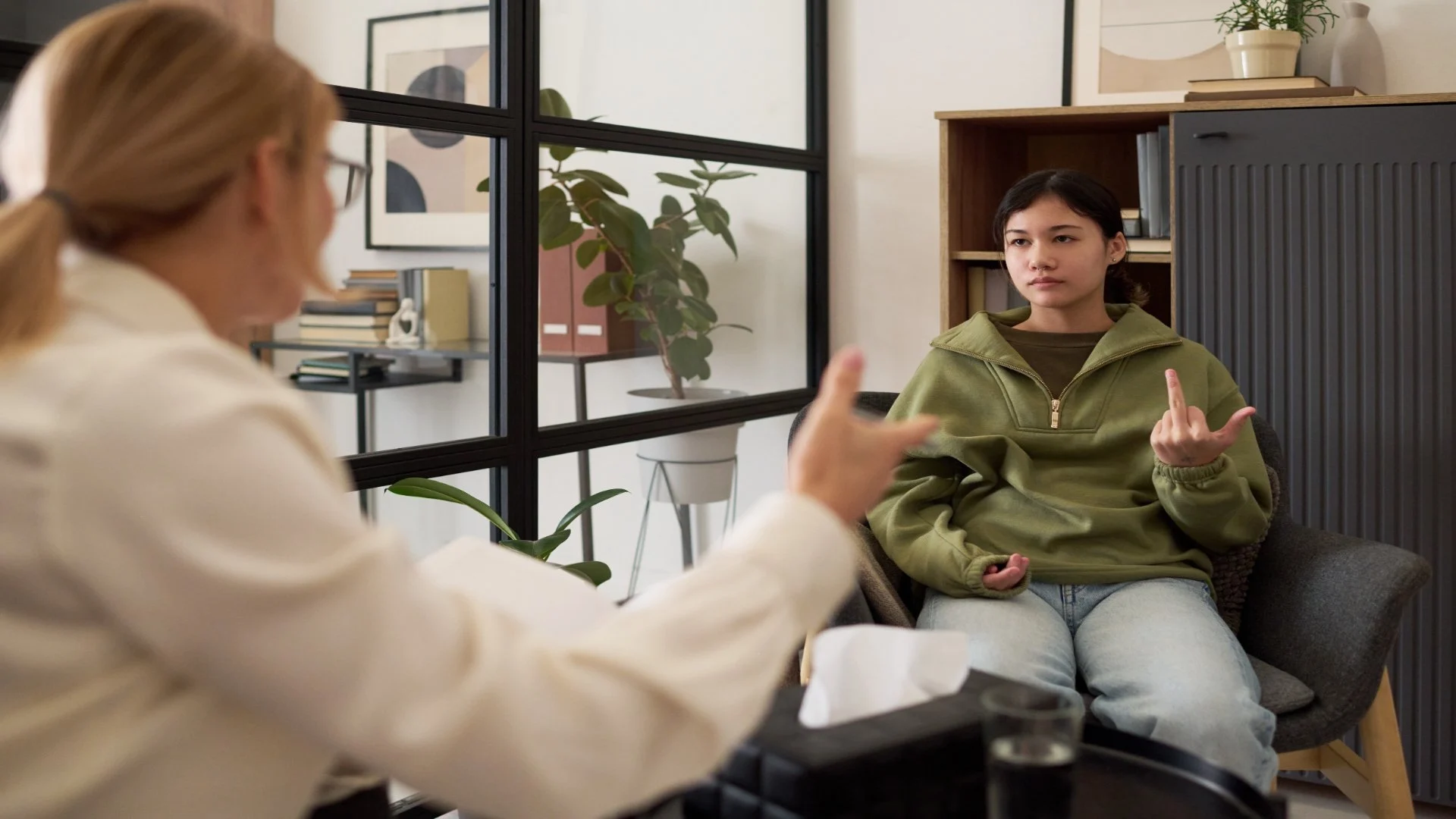Mental Health
OCD and Video Games

Discover how OCD and video games can intertwine, leading to compulsive gaming habits, anxiety, and strategies to regain balance in daily life.
If you or a loved one are caught in the cycle of OCD and video games, it can feel impossible to stop, leaving you anxious, isolated, or frustrated. This compulsive behavior can take a toll on your daily life, relationships, and overall well-being.
The good news is that support is available. At The Edge Treatment Center, we help you address these patterns with understanding, professional care, and tailored strategies. Our goal is to guide you toward healthier habits, reduce anxiety, and regain control over your gaming and your life.
Recognizing Compulsive Gaming Behaviors

Compulsive gaming can start subtly, often disguised as harmless fun, but it can gradually take control of your daily life. Recognizing the signs early is crucial for intervention and recovery.
Common Signs of Compulsive Gaming
You or your loved one may spend long hours gaming, neglect responsibilities, and feel anxious or irritable when unable to play. Emotional distress may intensify if attempts to cut back fail.
Impact on Daily Life
Compulsive gaming often interferes with school, work, or family obligations. Neglected responsibilities and disrupted routines can lead to frustration, guilt, and tension with loved ones.
Why Early Recognition Matters
Acknowledging compulsive behaviors is the first step toward recovery. At The Edge Treatment Center, we guide you through understanding these patterns in a compassionate, non-judgmental way.
The Role of OCD in Compulsive Gaming
OCD can make it difficult to manage repetitive thoughts and behaviors, and video games can sometimes amplify these patterns. Understanding this connection is key to addressing compulsive gaming effectively.
How OCD Influences Gaming
OCD is characterized by intrusive thoughts and compulsive behaviors. Gaming can become a ritualized behavior, offering temporary relief and a sense of control.
Gaming as a Compulsion
Certain in-game actions may be repeated obsessively to reduce anxiety. Ritualized gaming routines mirror traditional OCD behaviors, reinforcing compulsive cycles.
Escapism and Control
Video games can offer a temporary safe space where you feel in control, allowing a break from intrusive thoughts and the anxiety they provoke. This escape may seem helpful initially, providing relief and a sense of accomplishment.
However, relying on gaming as the primary way to manage emotions can gradually create dependency. Over time, compulsive play may intensify, making it harder to face real-life challenges, worsening anxiety, and reinforcing the cycle of obsessive behaviors.
Our Approach at The Edge Treatment Center
We help you recognize how OCD symptoms may fuel gaming compulsions. Together, we develop strategies that reduce reliance on games while addressing the root causes of obsessive behaviors.

We’re Here To Help You Find Your Way
Would you like more information about mental health or drug addiction? Reach out today.
The Psychological and Social Consequences
Compulsive gaming in the context of OCD can have far-reaching effects beyond the screen. The combination of obsessive thoughts and repetitive gaming behaviors can significantly impact mental, emotional, social, and even physical well-being. Understanding these consequences highlights the importance of seeking professional support early.
Mental Health Effects
Excessive gaming can exacerbate anxiety, depression, and feelings of hopelessness. The temporary relief gaming provides often fades quickly, leaving you trapped in a cycle where obsessive thoughts and compulsive behaviors continue to dominate daily life. Emotional regulation can become more challenging, and frustration or guilt may arise when attempts to cut back fail.
Social Impact
Compulsive gaming often leads to isolation. Time spent on video games can replace meaningful interactions with family, friends, and colleagues, straining relationships and creating conflict. Young adults and adolescents may experience academic setbacks or workplace difficulties, further impacting social and personal development.
Physical Health Concerns
Extended gaming sessions can disrupt sleep, eating habits, and physical activity, resulting in fatigue, weight fluctuations, posture issues, or vision strain. Over time, these physical effects compound mental and social difficulties, creating a cycle that is hard to break alone.
Restoring Balance
At The Edge Treatment Center, we address the psychological, social, and physical consequences of compulsive gaming. Our programs aim to restore healthy routines, strengthen relationships, and promote overall well-being so that you can regain control of your life.
Treatment Approaches at The Edge Treatment Center

Recovering from compulsive gaming, especially when it is linked to OCD, requires a structured, compassionate, and multifaceted approach. At The Edge Treatment Center, we combine evidence-based therapies, holistic methods, and family support to help you regain control over your gaming and your life.
Personalized Treatment Plans
We understand that each individual’s experience with OCD and gaming is unique. That is why we create personalized treatment plans tailored to your symptoms, challenges, and goals. These plans allow us to target the specific compulsions and triggers that affect your daily life, ensuring you receive care that fits your needs.
Cognitive Behavioral Therapy (CBT)
CBT is one of the most effective treatments for compulsive behaviors. Through this therapy, you learn to identify intrusive thoughts, recognize harmful patterns, and develop practical strategies to manage anxiety without relying on gaming as a coping mechanism. CBT equips you with tools to reduce compulsive behaviors gradually and sustainably.
Exposure and Response Prevention (ERP)
ERP is a specialized therapy for OCD that involves facing anxiety-provoking situations while resisting compulsive actions.
For example, if gaming serves as a ritual to manage obsessive thoughts, ERP teaches you to tolerate the discomfort without giving in to the compulsion. Over time, this approach helps reduce reliance on gaming and strengthens emotional resilience.
Holistic and Supportive Methods
In addition to traditional therapies, we incorporate holistic approaches such as art therapy, music therapy, and mindfulness exercises. These practices support emotional healing, encourage self-expression, and provide alternative ways to cope with stress and anxiety.
Family Support and Peer Groups
Compulsive gaming often affects entire families. Family therapy sessions at The Edge Treatment Center help rebuild communication, foster understanding, and teach supportive strategies.
Peer support groups also offer a safe space to share experiences, reduce isolation, and gain encouragement from others facing similar challenges.
By integrating these approaches, we provide a comprehensive treatment program that addresses the root causes of compulsive gaming while promoting overall mental, emotional, and social well-being.

We’ll Lead You to New Heights
Do you have more questions about mental health or drug addiction? Reach out.
Steps to Take if You Recognize These Behaviors
Acknowledging the problem is the first step toward recovery. Taking proactive measures ensures that you or your loved one receive the guidance and support needed for long-term change.
Self-Assessment
Reflect on gaming habits, triggers, and their impact on daily life. Honest self-assessment helps clarify whether gaming behaviors are compulsive or manageable.
Seeking Professional Help
Contact The Edge Treatment Center to discuss your situation with trained specialists. We offer compassionate evaluations and design treatment plans tailored to your needs.
Support for Families

Family members play a critical role in recovery. We provide guidance and resources to help families create a supportive environment that encourages positive change.
Taking the First Step
Reaching out is a courageous decision. With the right support, recovery is possible, and you can regain balance, improve mental health, and build a fulfilling life free from compulsive gaming behaviors.
OCD and Gaming Taking Over Your Life? We’ll Help You Take It Back
Compulsive gaming linked to OCD can feel overwhelming, but recovery is possible. At The Edge Treatment Center, we provide personalized treatment plans, evidence-based therapies, and compassionate support to help you regain control of your life.
Whether you are struggling with intrusive thoughts, compulsive behaviors, or the social and emotional consequences of excessive gaming, we can guide you toward healthier habits and lasting recovery.
You don’t have to face this challenge alone—reach out to The Edge Treatment Center and take the first step toward reclaiming balance, well-being, and a life free from compulsive gaming.

We’re Here To Help You Find Your Way
Do you need advice about mental health or drug addiction? Reach out today.
What Are the Signs that Gaming Has Become a Problem Due to OCD?
Signs include spending excessive time gaming, neglecting work, school, or family responsibilities, and feeling anxious or irritable when unable to play. Gaming may become a primary way to cope with obsessive thoughts, causing emotional distress and disrupting daily life.
Can Gaming Be Used as a Form of Therapy for OCD?
Video games can sometimes support therapy when carefully guided. In controlled settings, methods like Exposure and Response Prevention (ERP) use structured gaming tasks to face anxiety triggers. Professional oversight is essential to prevent reinforcing compulsions while promoting healthier coping strategies.
How Does The Edge Treatment Center Approach Gaming Addiction in Individuals with OCD?
We offer personalized treatment plans tailored to your needs. Our approach combines Cognitive Behavioral Therapy (CBT), ERP, holistic methods, family involvement, and peer support to address compulsive behaviors, manage anxiety, restore routines, and help you regain control over gaming and daily life.
Is It Possible to Enjoy Gaming in Moderation While Managing OCD?
Yes. With time limits, clear boundaries, and awareness of triggers, gaming can remain a safe recreational activity. Professional therapy, structured routines, and mindfulness strategies help prevent compulsive behaviors while allowing enjoyment without letting gaming dominate daily life or emotional well-being.
What Resources Are Available for Families Supporting a Loved One with OCD and Gaming Issues?
Families can access counseling, support groups, and educational resources to understand OCD and compulsive gaming. At The Edge Treatment Center, we involve family in therapy, teaching strategies to foster communication, provide support, and encourage recovery in a structured, compassionate environment.

We’re Here To Help You Find Your Way
If you or a loved one is struggling with addiction, there is hope. Our team can guide you on your journey to recovery. Call us today.
Written by
 Brian Moore
Brian MooreContent Writer
Reviewed by
 Jeremy Arzt
Jeremy ArztChief Clinical Officer
Mental Health
October 25, 2025
